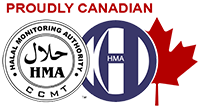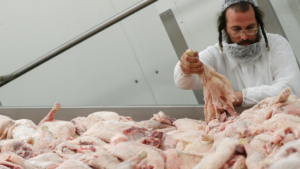Consuming Halal products obtained through Halal procedures is a major duty for Muslims everywhere. According to Islamic principles, every Muslim must follow the norms and values set out in the Holy Quran and Hadiths as closely as possible in their everyday lives, even if it is difficult to assimilate Islamic norms into the non-Muslim majority society. Moreover, many Muslims live in nations where Islam is not practiced as a state religion, such as India, Australia, China, European countries, the United States, and Canada. As a result, the Muslim community represents a significant market sector in the modern food industry. The food sector, on the other hand, has mostly overlooked the Muslim market. However, the worldwide Halal goods sector has recently grown at a breakneck speed.
The United States and Canada, particularly in Asia, have taken steps to develop Halal standards, traceability systems, and Halal science institutes. There is considerable evidence that non-Muslims increasingly choose Halal foods for added safety, cleanliness, and quality assurance characteristics due to widespread fear in the globe over food safety and security, such as the possibility of illnesses.
From preparation to packing and handling, Halal food certification by certified bodies ensures that the product meets international standards. It has become a symbol that the items meet Islamic dietary and lifestyle criteria and quality, cleanliness, and health standards. Customers that choose to consume Halal products require a halal certification system. The concept of Halal is presented here based on the opinions of prominent Islamic scholars. Many bodies certify them as Halal products; however, different interpretations of Halal items are being made. The source of Halal Certification (HC) of products/services appears to be critical for the organization and the consumers. The need for this certification comes not just from Muslim groups but also non-Muslim societies.
Canada is a proudly diverse and inclusive country; it is critical to enable people of all religious beliefs to live their lives as they see fit and be mindful of any dietary limitations. Halal certification is identical to any other form of food certification and audit system in this regard. Whatever the situation may be, whether it is halal, gluten-free, organic, non-GMO, it is critical to assist Canadian Muslim customers in making informed food choices. Many organizations in Canada offer halal certification. The procedure, though, is the same.
An audit of the manufacturing facility is done to analyze the product production process, evaluate ingredients, and assess the sanitary elements of the production lines to become Halal-certified in Canada. The certifying organization permits the use of their halal sign-on product labels once they have been registered and approved.
The Halal Monitoring and Certification Authority (HMA) was founded in 2004 and is a trustworthy halal monitoring and certification organization that fits seamlessly into current supply chains for suppliers, brands, and CPGs. The Halal Monitoring Authority Canada (HMA) is working to standardize and simplify halal certification in Canada. In addition, the HMA works with large Canadian businesses to enhance awareness and access the Canadian Muslim consumer market, growing at a rate of over 10%. The Halal Monitoring Authority (HMA), Canada’s only certifying organization that monitors every process stage, is dedicated to integrating directly into current supply chains and collaborating with businesses interested in entering the burgeoning halal market. The Halal Monitoring Authority Canada team comprises in-house food scientists, ingredient specialists, and over 20 on-site inspectors who collaborate with internal R&D departments to help source and confirm each component in a product to prepare it for halal certification and consumer market entrance. The Halal Monitoring Authority has developed a three-part inspection plan covering the whole supply chain, from abattoirs/slaughterhouses/manufacturers through middlemen (processors and distributors) to retailers (butchers and food outlets). HMA’s method entails poultry, meat, and other goods from the point of origin through the end of the slaughter, packing, and delivery. Finally, the HMA labeling and certification are available to help you make the best Halal decision.
This one-of-a-kind service assures that all certified items meet essential Islamic religious and ethical requirements. The HMA was founded when substantial malpractices in the community were discovered. It stepped in to be a trusted source and voice of authority when authenticating and educating halal customers in Canada.
The HMA Canada is the greatest choice for becoming certified in Canada. Throughout the certification procedure, we will assist you. HMA will help you choose the finest Halal certification service agreement for your business and customize it for your goods and industry. It’s a one-stop-shop for Halal Certification. We have the expertise, reputation, and experienced personnel to handle all of your Halal certification requirements. We can certify everything that meets Halal requirements, including the flavor and components of Halal meat. Please do not hesitate to contact us. Our experts will call you as soon as possible.



